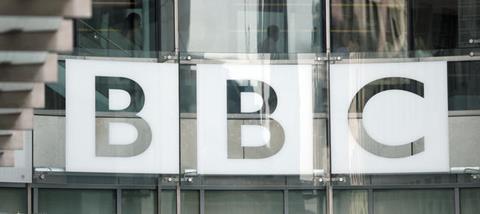
You might have thought the news that the BBC is aiming to diversify its religious coverage by giving more airtime to non-Christian religions ought broadly to be welcomed by Christians and other believers under the Trust’s public purposes remit to, “Reflect the different religious and other beliefs in the UK”.
But the rationale behind these proposals and their practical outworking raise for me, as a Muslim clergyman, significant questions, which should similarly concern all citizens who cherish freedom of speech and conscience, and the ability in our media to debate and criticise religious ideas.
The Christian Institute (CI) has correctly remarked that in matching the proportion of Christian programming to the percentage of licence payer revenue from that same faith constituency, self-identifying Christians cough up more than their fair share.
However, I would respectfully disagree with CI colleagues and say this must not become some silly game of census stats which would both see Muslims and Jews secure respectively just 4.8 and 0.5 per cent of screen time and, by the same principle, also mean the greater number of Mass-going Catholics warrant significantly more coverage on TV than Evangelicals.
My own evangelical and Catholic clergy friends aren’t asking for more power. Not a single one of my colleagues have truck with those who yearn for the allegedly "Christian" Britain of the 1950s, when churchgoing was a protected social formalism, together with misogyny and no dogs, no blacks, no Irish.
Christian “institutionalism”, like the worldly power of a Church by law established, has in fact more in common with the way Muslim states behave, and nothing whatsoever to do with what St Paul depicts as the radical foolishness of Christ and Calvary. So I would hope that we aren’t in this present debate trying to reduce Jesus merely to a voting shareholder of the BBC.
The interfaith establishment
Rather, the concern for me about this latest development in the Corporation’s approach to faith issues is focused on a deeper moral question about our society’s and our national media’s views of the "social domestication" of religion and the politics of its representation and control.
The new settlement proposed earlier this year by Aaqil Ahmed, BBC Head of Religion and Ethics, was enthusiastically backed by Ibrahim Mogra, assistant secretary general of the Muslim Council of Britain, who suggested the Corporation could televise Friday prayers from a mosque. It is reported that the BBC director-general, Lord Hall of Birkenhead, "will invite religious leaders to a round table next year" to consult and obtain a steer from these unelected Muslim leaders on whose mosques and whose sermons will represent Islamic belief to the nation.
Handing over religious broadcasting to the toxic influence of the same old monopolistic interfaith cartel is not diversifying, but restricting
I’ll not be holding my breath for being allowed a seat at the table among the usual interfaith establishment characters who populate and influence multiple government consultative committees of this sort, many of which faith leaders are associated with the taxpayer-funded lobby, The Inter Faith Network for the UK. In fact, when I’ve done religious broadcasting (on various radio or TV channels), there has often been an unspoken "interfaith compliance directive" which governs how far one is allowed to stray from the generally bland "Ready Brek glow" kind of clergyman’s homily that one is expected to purvey on air, still less say unpleasant stuff about why Islam might not be a religion of peace or talk bluntly about Anglican clergy sex abuse.
Freedom
Last December, I had to attend as a defence witness in Belfast at the trial of Pastor James McConnell, an evangelical preacher who was being prosecuted for criticising my religion. Significant exhibits in the Public Prosecutor’s case were BBC television and radio interviews where an elderly minister was being torn apart for upholding the exclusivist Gospel which preaches Christ as the sole way, truth and life, and expressing his anxieties about extremism and lack of trust in Muslim leaders.
The academic freedom of Pastor McConnell and myself, as Christian and Muslim clergymen, to disagree frankly about doctrine, was in effect robbed from us by an establishment media and judiciary who always knows best.
I have faced the ruthlessness of the "Interfaith Industry", this cartel of self-appointed religious politician leaders, when I’ve spoken out about its appetite for public money, its collusion with Islamist and other dodgy groups, and its artful manoeuvring into positions of unelected influence and control in our national life. And above all, its silencing of prophetic truth speaking and dissent, until the only acceptable Gospel of our age is the "Ready Brek" inter-religious mush that feeds the narcissism of us so very nice people.
To be handing over religious broadcasting to the toxic influence of the same old monopolistic interfaith cartel is not diversifying, but rather restrictive of the public debate that we must have about religion gone wrong in our world, and relationship of Christianity to the range of beliefs in the life of our country.
Sheikh Dr Muhammad Al-Hussaini is Senior Fellow in Islamic Studies at the Westminster Institute. He tweets at @MYAlHussaini
Click here to request a free copy of Premier Christianity magazine




























